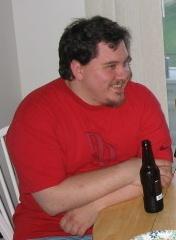Storytelling has really been my life. I started coming up with sets of characters and scenarios when I was very young and one of the big driving forces in my life has been the idea of doing this well and constantly learning to do it better. But the truth of the matter is that even if the drive comes naturally, the skill to use that drive does not.
At the end of the day I'm a "nuts and bolts" guy when it comes to aesthetics. I'll read a novel and compare it to the film adaptation to see where things were improved or worsened. I'll compare different adaptations of the same story. I watch different edits of the same film. I listen to director commentaries and watch deleted scenes and try to determine if they handled the tough decisions correctly.
I can watch a film or read a novel and see it like an engine and understand how moving different elements of the story or "pressure valves" can drastically affect the overall work. It can turn an unstoppable psychopath into a lovable loser who can't catch a break. It can turn a bold man who takes charge of his own life into a neurotic wreck who can't keep anything together.
Ultimately more so than any other form of art a story is a machine. The characters, setting, events and everything that goes into a story are little more than Gears, tools and pressure valves which make this machine run properly and perform the task it was built to do.
My goal here is to discuss the ideas behind how the machine itself works. To name, describe and discuss all the tools that make a good story and point out how they have been best applied in the past and can be applied in the future.
Subscribe to:
Post Comments (Atom)




No comments:
Post a Comment